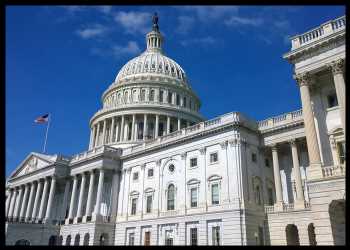House Passes Debt Ceiling Bill With Big Majority

The House of Representatives passed with overwhelming majority a bill to suspend the United States’ debt limit through January 1, 2025.
The Bill needs to be passed by the Senate to avert a first-ever default ahead of June 5 deadline given by the Treasury Department.
The debt ceiling is a spending limit stipulated by Congress which determines how much money the government can borrow.
If the debt ceiling is not raised beyond the current cap of $1.4 trillion, U.S. could enter a default on its debt, which could lead to global financial crisis.
Despite facing opposition from far-right lawmakers, the Fiscal Responsibility Act of 2023 was passed by 314 to 117 votes.
The Bill received significant bipartisan support. 149 Republican representatives and 165 Democrat representatives voted in favor.
The Fiscal Responsibility Act increases the federal debt limit, establishes new discretionary spending limits, rescinds unobligated funds, and expands work requirements for federal programs.
It will cut spending year-over-year, including a rollback of non-defense discretionary spending to FY22 levels.
President Joe Biden thanked House Speaker Kevin McCarthy and his team for negotiating in good faith, as well as Democratic Leader Hakeem Jeffries for his leadership.
“This agreement is good news for the American people and the American economy. It protects key priorities and accomplishments from the past two years, including historic investments that are creating good jobs across the country. And, it honors my commitment to safeguard Americans’ health care and protect Social Security, Medicare, and Medicaid. It protects critical programs that millions of hardworking families, students, and veterans count on,” he said in a statement.
Biden urged the Senate to pass the Bill as quickly as possible so that he can sign it into law.
The Bill’s sponsor, Republican Patrick McHenry, said, “The Fiscal Responsibility Act is the largest deficit-reduction bill in at least a decade and will fundamentally change the spending trajectory in Washington.
Source: Read Full Article
